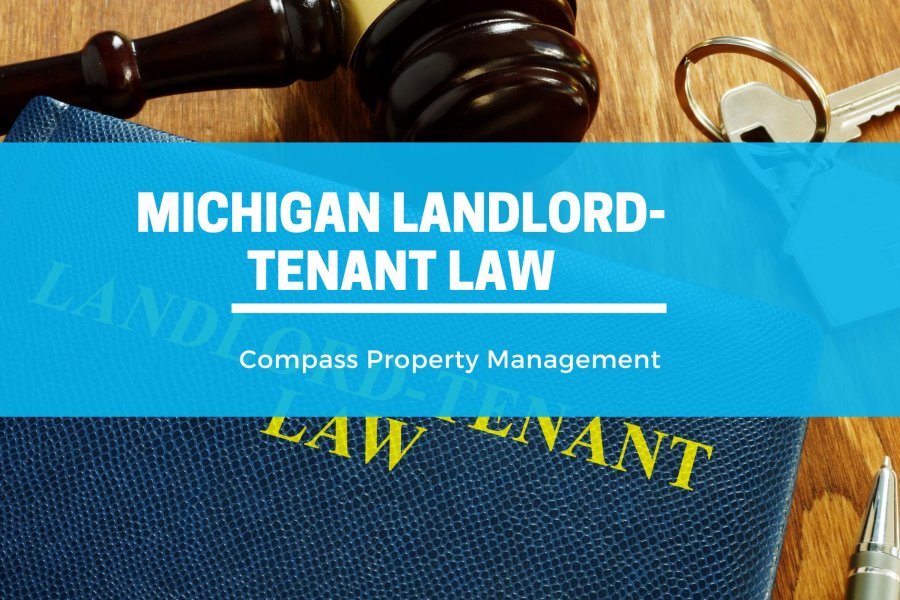
Michigan is one of the most lucrative markets for investing in real estate. If you plan to invest in a Michigan rental home, it’s important to understand the landlord-tenant laws that rule the state to avoid any potential issues. As a landlord, you have the responsibility to ensure that you stay in compliance with these laws.
Understanding the Michigan landlord-tenant law is important so that you’ll know your responsibilities as a landlord when you rent out your home. It is also crucial to understand the responsibilities and rights of your renters, such as paying rent. This way, you’ll be able to deal with legal issues that may arise during the course of a lease agreement term.
Required Landlord Disclosures in Michigan
Michigan landlords are required to disclose certain information to residents. Under Michigan landlord-tenant law, these are the mandatory disclosures that landlords must include:
Non-Refundable Fees
Non-refundable fees are optional disclosures, however, it is recommended to include all non-refundable charges in the lease or rental agreement to avoid any issues with residents. Failure to do so may make residents eligible for a refund when the rent lease expires.
Security Deposits
Michigan security deposit laws dictate that landlords may charge a deposit with a maximum amount equivalent to 1.5 months’ worth of rent. Security deposits need to be held in a regulated financial institution for the duration of the lease.
Landlords must include the deposit receipt disclosure, which requires the resident to notify the landlord in writing (within four days of moving to a new address) where they can be reached and receive mail.

Michigan landlords are also required to return the deposit once the rent period is over and minus any itemized deductions. Then they must return it to residents within 30 days after move-out. Make sure you get a forwarding address from your resident when their lease ends.
Read a more in-depth explanation of security deposit laws in Michigan here.
Rights of Domestic Violence Victims
According to Michigan law, a landlord is required to include a specific clause on protection from domestic abuse in the lease agreement. This clause allows a resident to be released of their obligation to rent as long as the resident can prove that they’re a victim of domestic violence.
Truth in Renting Act
The Truth in Renting Act disclosure is applicable to all rental properties in the state of Michigan. This means that every rental agreement in the state of Michigan must include a statement that indicates the rights of the residents under the law.
Owner or Agent Identity
Michigan landlord-tenant law also requires landlords to disclose their names and addresses and their authorized representatives.
The names, contact information, and addresses should be provided in the lease. This is to create smooth communication between property owners, their representatives, and the residents.
Move-in Checklist
If Michigan landlords choose to charge a deposit, they need to provide two copies of the inspection reports detailing the property’s condition within seven days after move-in.
The landlord will use this checklist upon move-out inspection. The move-in checklist should include any present damage and specific furnishings that are included in the rental unit.
The landlord should also indicate that these must be returned in the same condition as they were when residents moved in.
Resident Rights and Responsibilities in Michigan
A Michigan resident has the right to:

- Live in a habitable space.
- Receive their deposit (or what remains of it after allowable deductions) within a reasonable timeframe after moving out.
- Receive fair housing opportunities (as per fair housing laws).
- Take legal action if the landlord violates any provisions in the lease.
- Not be evicted as a form of retaliation or discrimination.
Residents can legally break a lease in Michigan due to:
- Early termination clauses in the lease agreements.
- Domestic abuse.
- Uninhabitable unit.
- Landlord harassment.
- Senior citizen health issues.
- Active military duty.
In Michigan, residents have the responsibilities to:
- Pay rent on time.
- Maintain the upkeep of the unit to keep it safe and habitable.
- Keep the peace in the neighborhood.
- Report maintenance issues immediately.
Landlord Rights and Responsibilities in Michigan
In Michigan, a landlord has the right to:
- Collect the cost of repairs for damages beyond normal wear and tear.
- Collect rent payments on a timely and regular basis.
- Begin the Michigan eviction process when there are legal grounds for one.
- Raise the monthly rent with a legal justification and provided written notice.
Basic landlord responsibilities in the state of Michigan include:
- Providing residents with a habitable living space.
- Follow all laws for their renters' security deposits
- Performing repairs within a reasonable timeframe.
- Addressing emergency issues within 24 hours.
- Returning the resident's deposit (minus allowable deductions) within 30 days after the move-out date.

- Providing residents with basic housing needs defined by local code requirements
An Overview of Michigan Landlord-Tenant Laws
Resident Privacy and Landlord’s Right to Enter the Dwelling
Michigan law does not state how much notice landlords must give before entering a rental unit or home. Both parties must mutually agree on this. Landlords are not required to give written notice to enter the premises in case of emergencies.
Maintenance and Repairs
As a Michigan landlord, you must ensure that the premises meets a certain level of habitability. Residents are mandated to make requested non-emergency repairs in a reasonable timeframe, while emergencies must be responded to within 24 hours.
Michigan’s Housing Discrimination Laws
The Federal Fair Housing Act prohibits landlords from discriminating against residents based on race, national origin, color, sex, religion, familial status, or disability. In Michigan, residents are also protected from being discriminated against based on age and marital status throughout the time they rent.
Residents’ Rights to Withhold Rent in Michigan
Michigan residents have the right to live in a habitable property due to Michigan’s [Implied Warranty of Habitability](http://www.legislature.mi.gov/(S(g1m0gex5iubf3zbv12raedmz). If a Michigan landlord fails to provide a habitable dwelling space, the resident may legally break the lease early and refuse to pay rent. Residents also have the right to get their security deposits back after the lease term ends.
Small Claims Lawsuits in Michigan
Rent-related disputes, amounting to less than $5,000 can be settled in Michigan small claims court. However, it is extremely rare for landlord-tenant cases to be taken to small claims court. The courthouse will not handle the eviction process for cases having to do with damages or cases having to do with disagreements that do not involve money.
In the rare case that a landlord-tenant issue is accepted in small claims court in Michigan, it usually revolves around the return of a security deposit, unpaid rent, or other lease violations that costs money to landlords.
Conclusion
Ensuring that you’re well versed in all of the Michigan's landlord-tenant laws and landlord-tenant rights is crucial when owning a rental property. That being said, it can be hard to keep up with Michigan state law when you’re managing a property on your own.
Consider hiring an accomplished property manager! At Compass Property Management, we have the experience and expertise to meet all your rental management needs. Contact us today to get started!
Disclaimer: This blog does not constitute legal advice from a licensed attorney in your state. Laws change, and this post might not be updated at the time of your reading. Please contact us for any questions you have in regards to this content or any other aspect of your property management needs.
